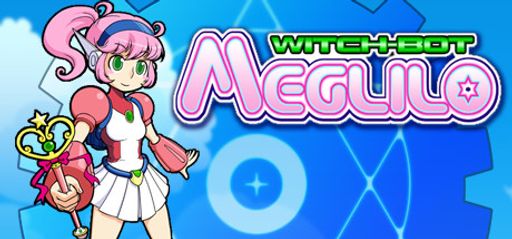Witch-Bot Meglilo, ASTRO PORT’s 2016 doujin shooter, revives the classic bullet-hell genre with a unique time-stop warp mechanic and tongue-in-cheek humor. In this indie shmup, players guide Meglilo—a retro-styled robot warrior—through neon-soaked arenas while dodging intricate bullet patterns and uncovering darkly absurd story beats. Though compact in length, Meglilo’s rapid-fire action, customizable weapon loadouts, and community-driven updates earn it a spot among the top retro shooters. Whether you’re new to bullet hell or a genre veteran chasing high scores, this review will break down its gameplay, visuals, audio, and replay value to help you decide if Witch-Bot Meglilo belongs in your Steam library.
Overall Impressions
I approached Witch-Bot Meglilo with completionist resolve. ASTRO PORT’s 2016 doujin shooter surprised me. Its “Time-stop warp” mechanic stands out above many bullet hell entries. Dark humor fuels its absurd story beats. Yet its length felt brief. Compared to Astro Port’s Gunhouse and Zangeki Warp, Meglilo delivers faster, wackier action. It earns its place among top indie shmups, even if it skips some deep content.
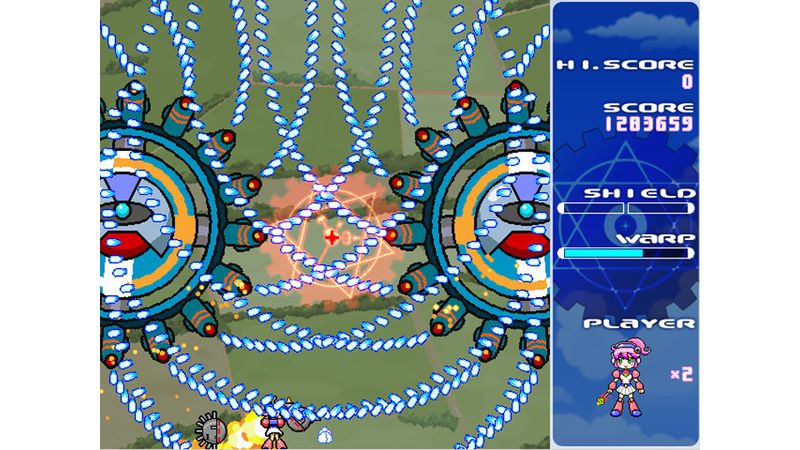
Gameplay Mechanics
Meglilo centers on automatic shooting and warp-based dodging. Holding the fire key rains bullets on enemies. The key innovation lies in stopping time and warping through obstacles. Once I mastered this, levels transformed from chaos into rhythmic challenges. Early stages ease new players into bullet hell. The higher intensity difficulty ramps up without feeling unfair. I died often at first, but each retry taught me more about hitboxes and dodge timing.
User tips proved invaluable. Grabbing powerup drones adapts your arsenal to each stage. Using warp proactively becomes second nature. I learned to treat warp energy as a renewable shield rather than a panic button. Some optional weapons drastically shift playstyle, rewarding me when I fully explored weapon variants. Though a few boss patterns felt repetitive, the warp mechanic kept engagements fresh.
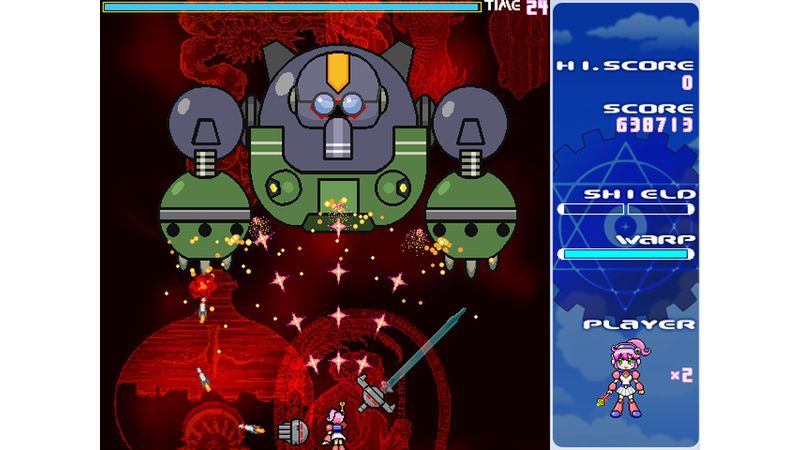
Story and Characters
The game abandons emo mystique for outright absurdity. Set in 1977, it gifts us Meglilo—part sailor scout, part robot warrior. She warps through retro sci-fi backdrops while delivering one-liners. NPCs like Kitchy add color before they meet hilariously dark fates. Shake-O’s character art evokes vintage doujin style. It isn’t as polished as his Doctor Hitomi work, but it nails the 1970s vibe. Dialogue scenes run on a groaning synth track that underlines each joke. While the plot never aims for depth, its self-aware humor kept me invested through every stage.
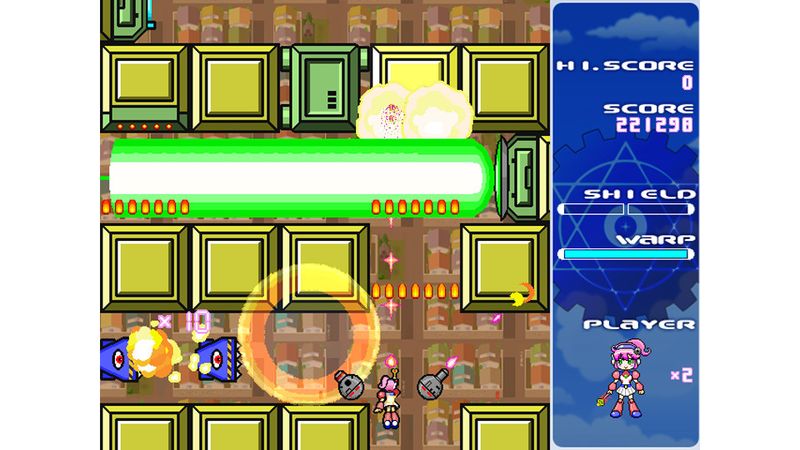
Visuals and Graphics
Meglilo’s pixel art echoes late-70s arcade screens. Enemies appear large and colorful against dark backdrops. Bullets use bold, contrasting hues to aid readability. I never second-guessed a stray bullet’s path. Environments shift from neon labs to gritty space stations with retro flair. Some players note weaker graphics than other Astro Port titles. I found that choice intentional. The lower-res look underscores the world’s campy absurdity. Scaling options let you stretch windows without distortion. Overall, visuals deliver clarity and charm.
Sound and Music
The soundtrack blends chiptune beats with industrial synths. It energizes each run but sometimes grates during story segments. I muted a few cutscenes to focus on dialogue. Combat themes, however, hit the right adrenaline notes. Sound effects for bullets, warps, and explosions map cleanly to on-screen action. Witch-Bot’s laser crackles to life, and warp jumps fizz with satisfying tone. No voice acting appears in this doujin release, yet written banter maintains narrative drive. While not OST of the year, the audio design supports the chaotic pace.
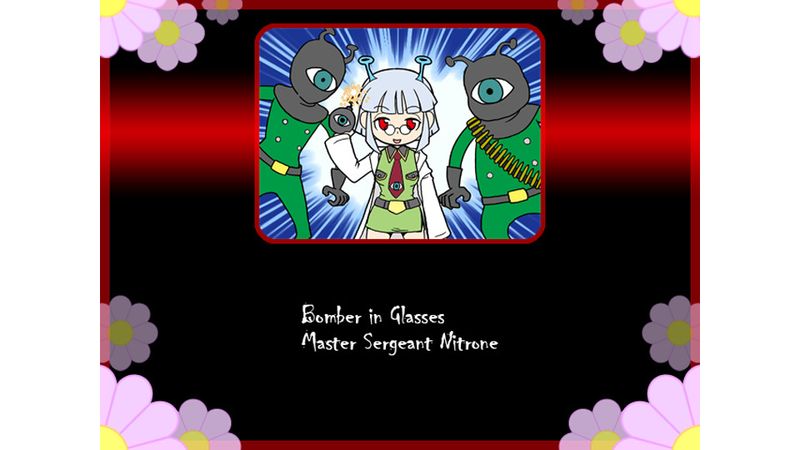
Difficulty and Replayability
This game offers no checkpoints. Lose all lives, and you restart from the last level’s beginning. That design echoes classics like Armed Seven. It pushes me to perfect each segment. Death feels fair if I mistime a warp or misjudge a pattern. Normal mode suits most players, while two higher difficulties await completionists. I’ve beaten Normal swiftly, but the highly intense mode beckons with tighter bullet patterns. Optional weapon routes and score challenges encourage multiple runs. ASTRO PORT even patched achievements quickly after release, showing their dedication to fan feedback.
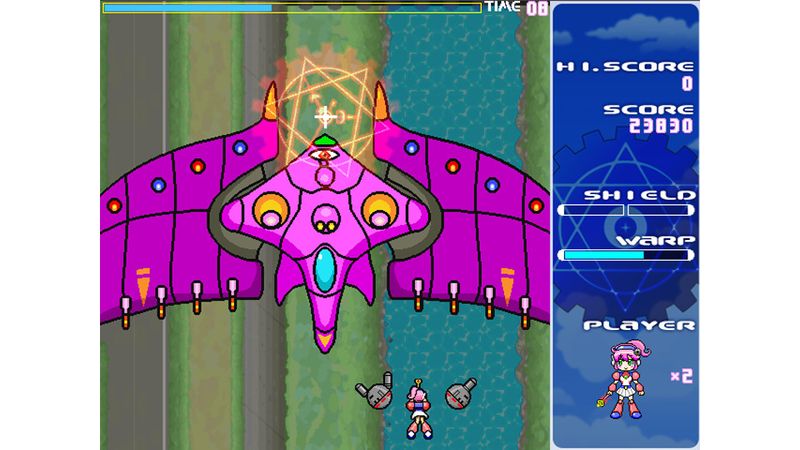
Trivia and Developer Notes
Meglilo began as a passion project—ASTRO PORT built this title as a doujin side endeavor alongside Zangeki Warp, and Henteko Doujin ultimately released it on July 15, 2016. Since launch, the development team has stayed laser-focused on community input, listening closely to player feedback on forums and rolling out swift patches to address balance tweaks, bug fixes, and quality-of-life improvements. This rapid response cycle not only keeps the game feeling fresh but also fosters a loyal, engaged player base.
Visually, Meglilo stands out thanks to character artist Shake-O, who infused every design with nostalgic nods to 1970s manga tropes. From dynamic panel-style layouts to retro-inspired shading, each sprite feels both timeless and full of personality. Meanwhile, the art’s vintage flair is perfectly balanced by modern gameplay mechanics and polished performance, ensuring that the classic aesthetic never comes at the cost of smooth, responsive action.
Ultimately, these developer notes showcase Meglilo’s unique blend of fan-driven creativity, responsive development, and retro artistry. Whether you’re drawn in by the game’s roots in doujin culture, impressed by its commitment to rapid updates, or smitten with its throwback visuals, Meglilo delivers an experience that feels both lovingly crafted and endlessly engaging.
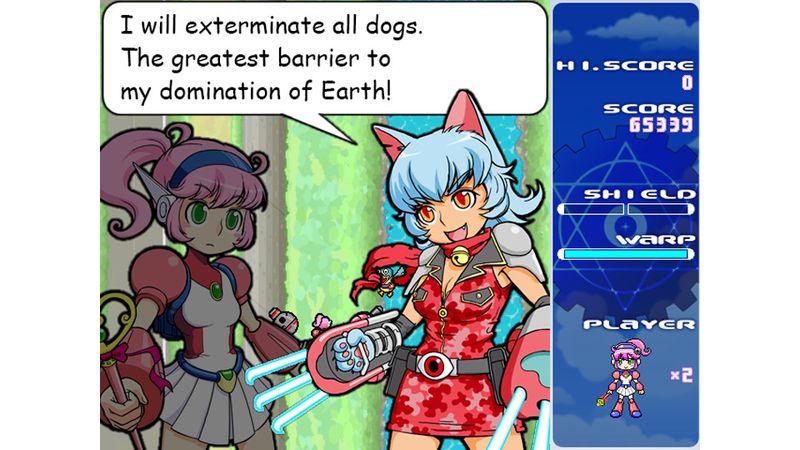
Final Thoughts
Witch-Bot Meglilo delivers addictively tight bullet hell action wrapped in self-aware comedy. Its warp mechanic refreshes the genre, even if its visual polish lags behind Astro Port’s heavier hitters. Short length won’t deter dedicated players—replay modes and weapon variety fuel extended sessions. I recommend it to both newcomers and genre veterans seeking a concise, charming shmup.
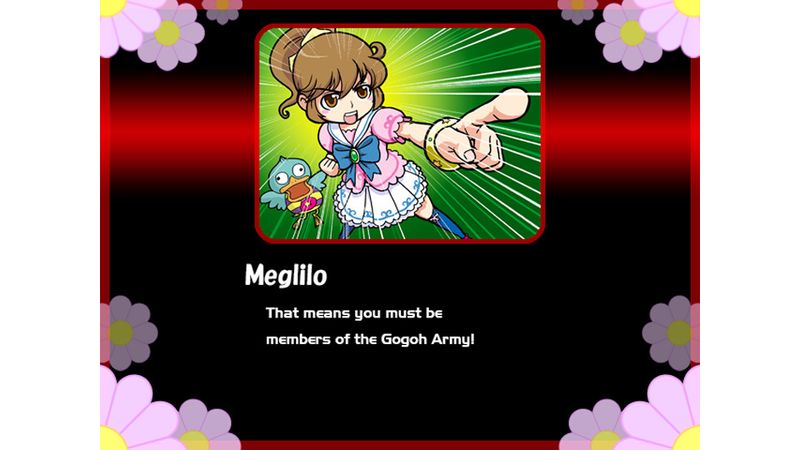
Rating: 4.5 out of 5 stars

